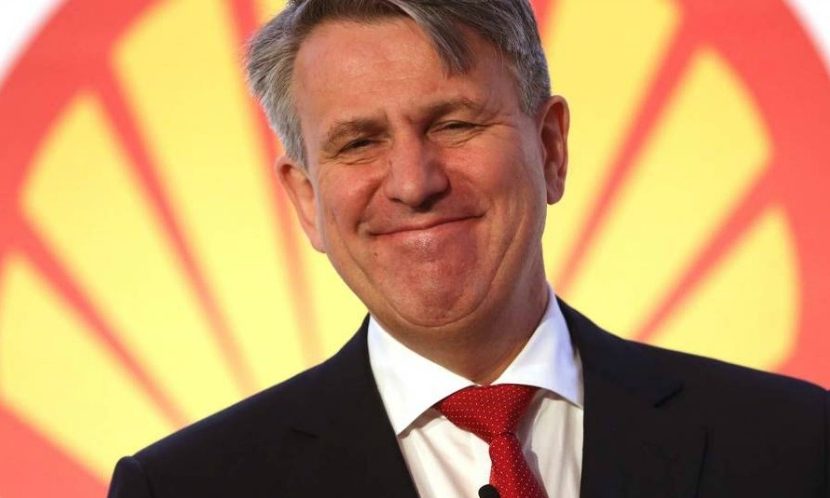June 2018
Fossil fuels are big money, and those who manage the companies which extract them aren’t exactly known for turning down their multi-million-dollar bonuses.
Top oil execs can expect to receive take-home pay hundreds of times that of an average salary. Last year, Shell CEO Ben van Beurden received €8.9m, BP’s Bob Dudley enjoyed a pay deal worth £9.5m and new Exxon Mobil boss Darren Woods pocketed $17.5m, after replacing Rex Tillerson who went on to be Donald Trump’s Secretary of State. In 2014, their combined pay packets reached an eye-watering $80.6m, with Shell quick to defend van Beurden’s pay, saying it:
‘reflects delivery of company strategy, measured by both short-term and long-term targets’.
Environmental disasters and financial losses don’t seem to stop the bonuses flowing either. In 2011, despite a drop in the company’s share price following the Deepwater Horizon oil spill, two of BP’s senior directors still received bonuses, while in 2016 Bob Dudley justified his £14m pay packet by saying:
‘When you look at it carefully, my pay and bonus is less this year than last year’.
Ultimately, oil company bosses are rewarded handsomely for pursuing business strategies that are in conflict with both climate science and the internationally endorsed Paris Climate Agreement. While research estimates that 80 percent of proven fossil fuel reserves would need to be left in the ground to avoid dangerous climate change, these companies are ploughing ahead with new projects, such as BP’s ‘Sunrise’ development in Canada’s controversial tar sands.
Many have tried questioning oil companies on their climate-wrecking business plans at the companies’ annual general meetings but have been left disappointed by evasive answers. One shareholder activist with campaigners ShareAction said this year’s attempts to reason with BP turned out to be:
‘an instructive lesson in corporate evasion and lying’, with another attendee describing the experience of listening to senior figures discussing climate change as feeling like ‘one big greenwash session’.
